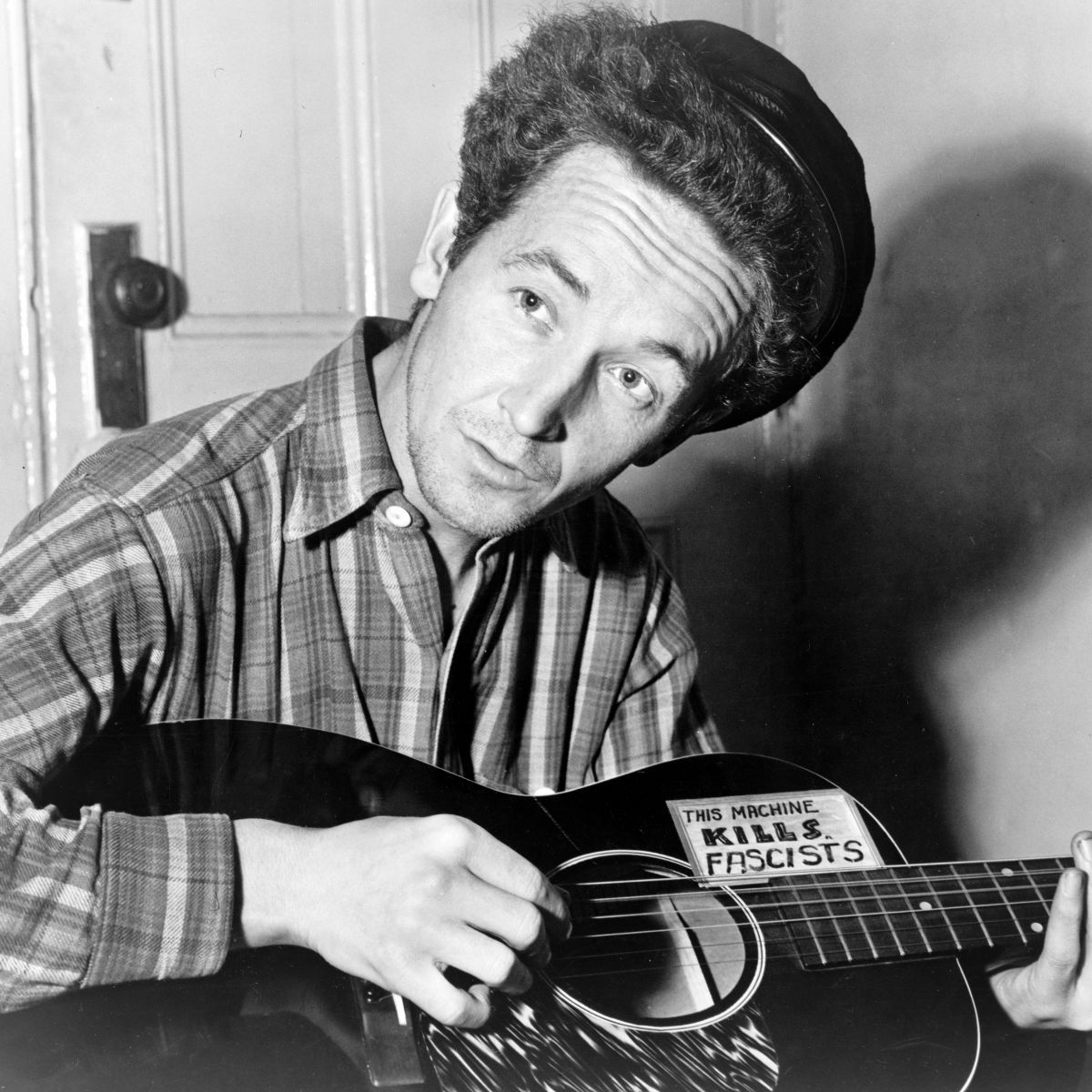Table of Contents
Introduction
Huntington's disease is a rare and devastating neurodegenerative disorder that has affected the lives of many individuals, including some famous people. This condition, which is both genetic and progressive, leads to the gradual decline of motor skills, cognitive abilities, and emotional stability. Despite its rarity, Huntington's disease has garnered significant attention due to its profound impact on individuals and families. Understanding the stories of famous people with Huntington's disease not only sheds light on the challenges they faced but also inspires hope and awareness for those affected by this condition.
Huntington's disease is caused by a mutation in the HTT gene, leading to the production of an abnormal protein that damages brain cells over time. The disease typically manifests in adulthood, often between the ages of 30 and 50, and progresses over a period of 10 to 25 years. While there is currently no cure, ongoing research and advocacy efforts are paving the way for better treatments and support systems. By exploring the lives of famous individuals who have battled this disease, we can better understand its impact and the importance of raising awareness.
The stories of these individuals serve as a reminder of the resilience of the human spirit and the importance of compassion and support in the face of adversity. Whether through their artistic contributions, advocacy work, or personal struggles, these famous people have left an indelible mark on society. Their experiences highlight the urgent need for advancements in medical research and the importance of community support for those living with Huntington's disease.
Read also:Unveiling The Mysteries Of The Chinese Zodiac 1965 Insights Traits And Compatibility
What is Huntington's Disease?
Huntington's disease is a hereditary disorder that affects the brain, causing the progressive breakdown of nerve cells. This degeneration leads to a wide range of physical, cognitive, and emotional symptoms. The disease is caused by a mutation in the HTT gene, which results in the production of an abnormal version of the huntingtin protein. Over time, this protein accumulates in the brain, leading to the death of neurons and the characteristic symptoms of the disease.
Symptoms of Huntington's disease typically begin in adulthood and worsen over time. Early signs may include subtle changes in mood, such as irritability or depression, and minor motor difficulties, such as clumsiness or difficulty with coordination. As the disease progresses, individuals may experience more pronounced motor symptoms, including involuntary jerking movements (chorea), difficulty walking, and problems with speech and swallowing. Cognitive decline, including memory loss and impaired judgment, is also common, as are emotional disturbances like anxiety and apathy.
Because Huntington's disease is genetic, individuals with a family history of the condition are at risk of inheriting the mutated gene. Each child of an affected parent has a 50% chance of inheriting the gene and developing the disease. Genetic testing is available to determine whether someone carries the mutation, but the decision to undergo testing is deeply personal and often accompanied by genetic counseling. Understanding the nature of Huntington's disease is crucial for raising awareness and supporting those affected by it.
Famous People with Huntington's Disease
Several well-known individuals have been diagnosed with Huntington's disease, bringing attention to the condition and its challenges. Among the most prominent figures is Woody Guthrie, the legendary American folk singer and songwriter. Guthrie's battle with the disease not only highlighted the personal toll it takes but also inspired advocacy and research efforts that continue to this day. Other notable figures include Charles Sabine, a former NBC news correspondent, and former U.S. Congressman Maurice Felix Hinchey, both of whom have used their platforms to raise awareness about Huntington's disease.
These individuals have contributed significantly to increasing public understanding of the condition. Through their work and advocacy, they have helped reduce the stigma surrounding Huntington's disease and encouraged others to seek support and information. Their stories serve as a testament to the resilience and courage required to face such a challenging diagnosis. By sharing their experiences, they have inspired countless others to join the fight against this debilitating illness.
Biography of Woody Guthrie
Woody Guthrie, born on July 14, 1912, in Okemah, Oklahoma, is widely regarded as one of the most influential American folk musicians of the 20th century. Known for his socially conscious lyrics and iconic songs like "This Land Is Your Land," Guthrie's music has left an indelible mark on American culture. However, his life was also marked by personal struggles, including his diagnosis with Huntington's disease, which ultimately claimed his life in 1967.
Read also:How To Remotely Access Iot Devices Via Ssh And Web For Free On Android
Below is a table summarizing Woody Guthrie's personal information:
| Full Name | Woodrow Wilson Guthrie |
|---|---|
| Date of Birth | July 14, 1912 |
| Place of Birth | Okemah, Oklahoma, USA |
| Date of Death | October 3, 1967 |
| Cause of Death | Complications from Huntington's Disease |
| Notable Works | "This Land Is Your Land," "Pastures of Plenty," "Deportee (Plane Wreck at Los Gatos)" |
Guthrie's battle with Huntington's disease began in the early 1950s, and his declining health forced him to retire from performing. Despite his physical and cognitive challenges, his legacy as a musician and activist endures. His story has inspired generations of artists and advocates, and his family has been instrumental in raising awareness about Huntington's disease through the establishment of the Huntington's Disease Society of America (HDSA).
Personal Impact and Legacy
The impact of Huntington's disease on famous individuals like Woody Guthrie extends beyond their personal lives, influencing broader societal perceptions and advocacy efforts. Guthrie's diagnosis brought attention to the disease at a time when it was poorly understood, sparking conversations about the need for research and support. His family, including his son Arlo Guthrie, has continued to champion the cause, using their platform to educate the public and raise funds for research.
Similarly, Charles Sabine, a former NBC news correspondent, has been a vocal advocate for Huntington's disease awareness. Diagnosed in 2005, Sabine has used his media experience to highlight the challenges faced by those living with the condition. His advocacy work has included appearances on television, participation in awareness campaigns, and efforts to promote genetic testing and counseling. Sabine's story underscores the importance of early diagnosis and the role of community support in managing the disease.
These individuals have also contributed to the legacy of Huntington's disease research. Their willingness to share their experiences has helped researchers better understand the disease's progression and the needs of affected individuals. By fostering a sense of community and solidarity, they have inspired others to join the fight against Huntington's disease, ensuring that progress continues to be made in the search for a cure.
Scientific Advancements in Huntington's Disease
Over the years, significant progress has been made in understanding Huntington's disease, thanks in part to the advocacy and awareness efforts of famous individuals affected by the condition. Researchers have made strides in identifying the genetic mechanisms underlying the disease, leading to the development of potential treatments and therapies. One of the most promising areas of research involves gene therapy, which aims to target and correct the mutated HTT gene responsible for the disease.
Recent clinical trials have explored the use of drugs that can reduce the production of the abnormal huntingtin protein, offering hope for slowing or halting the progression of symptoms. These advancements are the result of decades of dedicated research, supported by organizations like the Huntington's Disease Society of America (HDSA) and the efforts of advocates who have raised awareness and funding. The involvement of famous individuals has played a crucial role in accelerating these developments, as their stories have inspired both public and private investments in research.
While a cure for Huntington's disease remains elusive, the progress made thus far underscores the importance of continued advocacy and collaboration. The scientific community is optimistic that ongoing research will lead to breakthroughs that can improve the quality of life for those affected by the disease. By supporting research initiatives and raising awareness, individuals and organizations can contribute to the fight against Huntington's disease and bring us closer to a future where effective treatments are available.
Support and Awareness for Huntington's Disease
Raising awareness about Huntington's disease is crucial for fostering understanding, reducing stigma, and encouraging early diagnosis. Famous individuals who have shared their experiences with the condition have played a pivotal role in this effort, helping to educate the public and inspire action. Organizations like the Huntington's Disease Society of America (HDSA) and the European Huntington's Disease Network (EHDN) have been instrumental in coordinating awareness campaigns and providing resources for affected individuals and their families.
How to Get Involved
- Participate in fundraising events such as walks, runs, or charity concerts to support research and advocacy efforts.
- Volunteer with organizations dedicated to Huntington's disease awareness and support.
- Share information about the disease on social media to reach a wider audience.
- Advocate for increased funding for research and improved healthcare policies for individuals with Huntington's disease.
These efforts not only raise funds for critical research but also create a sense of community for those affected by the disease. By coming together to support one another, individuals and families can find strength and hope in the face of adversity. The stories of famous people with Huntington's disease serve as a powerful reminder of the importance of compassion, understanding, and collective action in addressing this challenging condition.
Genetic Testing and Counseling
For individuals with a family history of Huntington's disease, genetic testing can provide clarity about their risk of developing the condition. However, the decision to undergo testing is deeply personal and often accompanied by emotional and psychological challenges. Genetic counseling plays a vital role in this process, offering individuals and families the support and guidance they need to make informed decisions about testing and its implications.
Benefits of Genetic Counseling
- Helps individuals understand the genetic basis of Huntington's disease and their personal risk.
- Provides emotional support and coping strategies for dealing with the results of genetic testing.
- Offers guidance on family planning and discussing the condition with loved ones.
- Connects individuals with resources and support groups for managing the disease.
Genetic testing and counseling are essential tools in the fight against Huntington's disease, empowering individuals to take control of their health and make informed decisions. By raising awareness about these resources, we can ensure that those at risk have access to the information and support they need to navigate the challenges of living with this condition.
Living with Huntington's Disease
Living with Huntington's disease presents unique challenges, but with the right support and resources, individuals can maintain a fulfilling and meaningful life. From managing symptoms to accessing healthcare services, there are many strategies that can help improve quality of life for those affected by the condition. Famous individuals with Huntington's disease have demonstrated the importance of resilience, community, and advocacy in facing these challenges.
Tips for Managing Huntington's Disease
- Work closely with healthcare providers to develop a personalized care plan.
- Engage in physical and occupational therapy to maintain mobility and independence.
- Join support groups to connect with others facing similar challenges.
- Prioritize mental health by seeking counseling or therapy as needed.
By sharing their experiences, famous people with Huntington's disease have inspired countless

